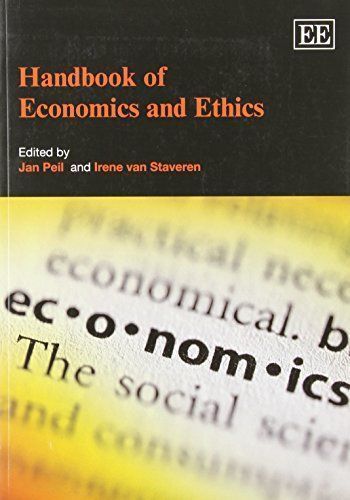
Handbook of Economics and Ethics
This volume pulls together a remarkable collection of contributors designed to challenge the positive-normative dichotomy in economic methodology. . . The intent of this publication is to provide a reference manual for those seeking insights into the connections between economics and ethics. It succeeds in that goal and should become a starting point for anyone who believes that mainstream economics needs methodological reorientation. . . Anyone interested in ethics and economic methodology would do well to have this reference book handy. Highly recommended. J. Halteman, Choice This new Handbook of Economics and Ethics makes a substantial contribution as a wide-ranging up-to-date reference work, including original developments, on these two fundamentally interconnected fields. This contribution is particularly timely, given the increasing attention being paid to economics as a moral science. The Handbook contains seventy-five expert entries on subjects ranging from the history of economics and philosophy to conceptual analysis of ethics in various aspects of modern economics, while representing a diversity of views. Sheila Dow, University of Stirling, UK The Handbook of Economics and Ethics portrays an understanding of economic methodology in which facts and values, though distinct, are closely interconnected in a variety of ways. From theory building to data collection, and from modelling to policy evaluation, this encyclopaedic Handbook is at the intersection of economics and ethics. Irene van Staveren and Jan Peil bring together 75 unique and original papers to provide up-to-date insights on topics such as markets, globalization, human development, rationality, efficiency, and corporate social responsibility. The book presents contributions from an array of international scholars using methodological and theoretical approaches, and convincingly demonstrates the death of the positive/normative dichotomy that so long held economics in its grip. This invaluable resource will strongly appeal to students of economics and economic methodology, philosophy of science and ethics. It will also be of great benefit to academics and policy-makers involved in economic policies and ethics.